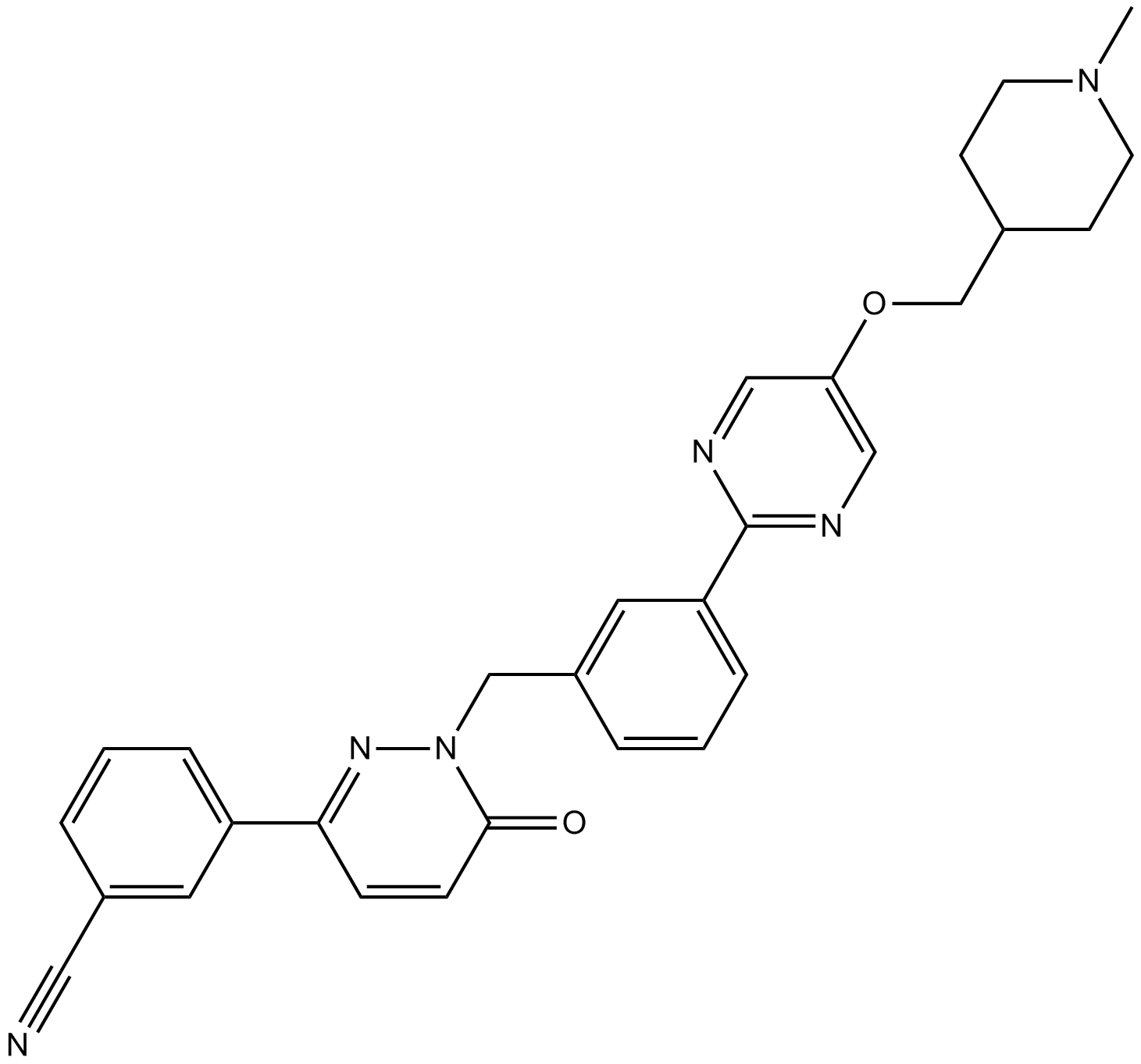EMD-1214063 |
| Catalog No.GC10466 |
EMD-1214063 (Tepotinib, MSC2156119J) is a novel potent and highly selective reversible, ATP-competitive small molecule c-Met inhibitor .
Products are for research use only. Not for human use. We do not sell to patients.

Cas No.: 1100598-32-0
Sample solution is provided at 25 µL, 10mM.
EMD-1214063 (Tepotinib, MSC2156119J) is a novel potent and highly selective reversible, ATP-competitive small molecule c-Met inhibitor [1]. EMD-1214063 inhibited recombinant human c-Met kinase with an average IC50 of 3 nmol/L [2].
EMD-1214063 treated A549 cells resulted in inhibition of HGF-induced c-Met phosphorylation, with an average IC50 of 6 nmol/L [2]. The inhibitory effect of combined treatment with gefitinib (0.25-8 μM) and EMD-1214063 (2-10 μM) was significantly enhanced compared with single agent therapy in MDA-MB-468 cells [3].
EMD-1214063(5, 15 mg/kg) treated EBC-1 non-small cell lung cancer tumor cells bearing mice resulted in effective inhibition or complete tumor regression [1]. EMD-1214063 induced dose-dependent tumor growth inhibition in mice bearing human pancreatic carcinoma KP-4 tumors . Daily administration of EMD 1214063 at 200 mg/kg resulted in partial tumor regressions in 60% of tumor bearing mice [1].The combination of EMD-1214063 (100 mg/kg) with rociletinib (100 mg/kg) caused complete tumor regression over the treatment period of 21 d , with no regrowth during the observation period following withdrawal of treatment, in the model of EGFR TKI-resistant tumors with high HGF/c-Met expression [4].EMD-1214063 (100 mg/kg) in combination with afatinib (5 mg/kg) caused complete tumor regression with no regrowth during the period of observation in PC-9 xenografts [4].
References:
[1]. Naing A, Falchook G S, Fu S, et al. A Phase I Dose-Escalation Study of emd 1214063, an Oral Selective CMET Inhibitor, in Patients with Advanced Solid Tumors[J]. Annals of Oncology, 2012, 23: xi21.
[2]. Bladt F, Faden B, Friese-Hamim M, et al. EMD 1214063 and EMD 1204831 Constitute a New Class of Potent and Highly Selective c-Met InhibitorsEMD 1214063 and EMD 1204831, a New Class of c-Met Inhibitors[J]. Clinical Cancer Research, 2013, 19(11): 2941-2951.
[3]. Sohn J, Liu S, Parinyanitikul N, et al. cMET activation and EGFR-directed therapy resistance in triple-negative breast cancer[J]. Journal of Cancer, 2014, 5(9): 745.
[4]. Friese-Hamim M, Bladt F, Locatelli G, et al. The selective c-Met inhibitor tepotinib can overcome epidermal growth factor receptor inhibitor resistance mediated by aberrant c-Met activation in NSCLC models[J]. American journal of cancer research, 2017, 7(4): 962.
Average Rating: 5 (Based on Reviews and 30 reference(s) in Google Scholar.)
GLPBIO products are for RESEARCH USE ONLY. Please make sure your review or question is research based.
Required fields are marked with *




















